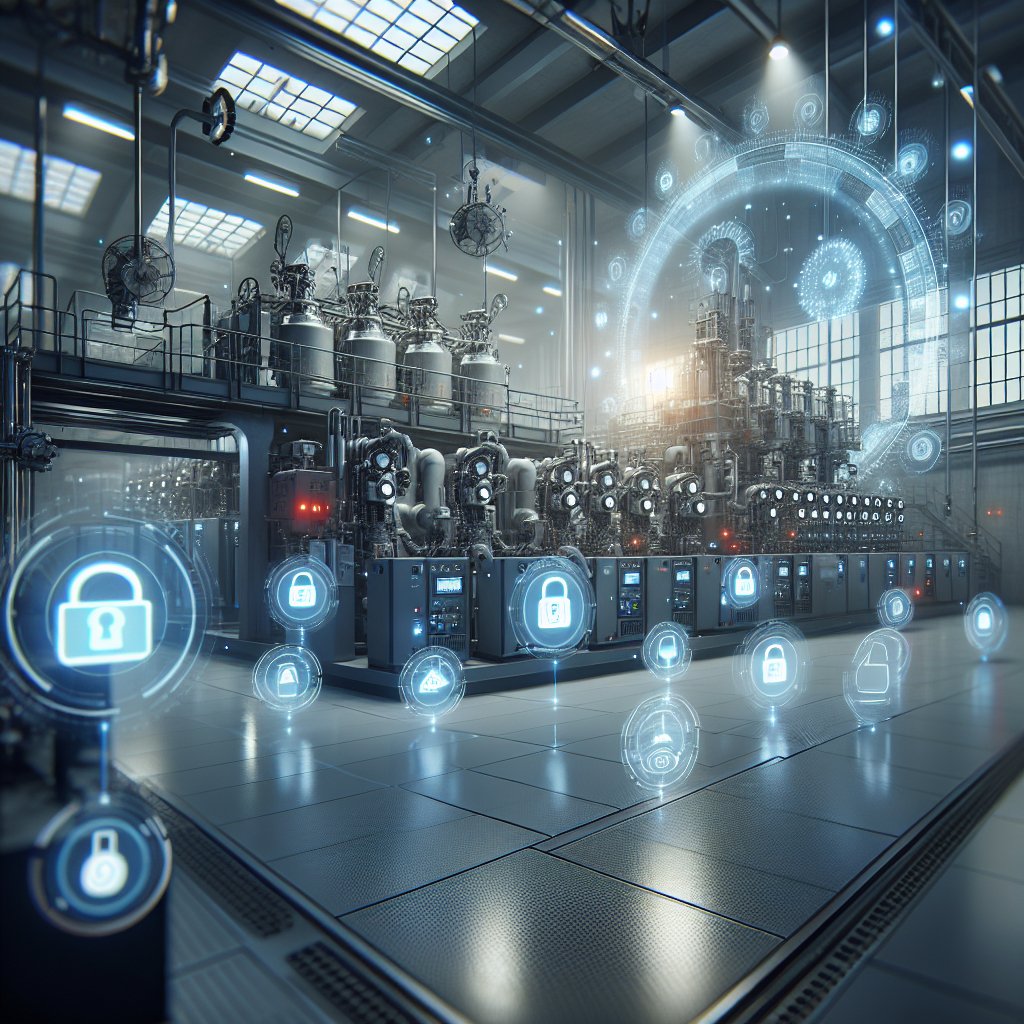
Industrial Control Systems (ICS) are the backbone of modern industry, playing a crucial role in managing and automating processes across various sectors such as manufacturing, energy, and transportation. As these systems become increasingly interconnected, the importance of securing them against cyber threats has never been more critical. This article delves into the intricacies of ICS security, exploring the challenges, strategies, and best practices to safeguard these vital systems.
Understanding Industrial Control Systems
Industrial Control Systems encompass a wide range of control systems and associated instrumentation used for industrial process control. These systems include Supervisory Control and Data Acquisition (SCADA) systems, Distributed Control Systems (DCS), and other control system configurations such as Programmable Logic Controllers (PLC). Each of these components plays a specific role in ensuring the smooth operation of industrial processes.
Components of ICS
SCADA systems are used for remote monitoring and control, often covering large geographical areas. They are essential in industries like water management, oil and gas, and electricity distribution. DCS, on the other hand, are used for process control within a single location, such as a manufacturing plant. PLCs are specialized computers used to automate industrial processes, from simple tasks like controlling machinery to complex operations involving multiple systems.
The integration of these components allows for efficient and automated control of industrial processes, but it also introduces vulnerabilities that can be exploited by cyber threats. Understanding the architecture and functionality of ICS is the first step in developing effective security measures.
Challenges in Securing ICS
Securing Industrial Control Systems presents unique challenges that differ from traditional IT security. One of the primary challenges is the legacy nature of many ICS components. These systems were often designed decades ago, with little consideration for cybersecurity. As a result, they may lack basic security features such as encryption and authentication.
Legacy Systems and Vulnerabilities
Many ICS components are built on outdated technology, making them susceptible to known vulnerabilities. Updating or replacing these systems can be costly and time-consuming, leading many organizations to continue using them despite the risks. Additionally, the proprietary nature of many ICS components can make it difficult to apply standard security patches and updates.
Another challenge is the convergence of IT and OT (Operational Technology) networks. As ICS become more interconnected with corporate IT networks, they become exposed to a wider range of cyber threats. This convergence requires a holistic approach to security that considers both IT and OT environments.
Human Factors
Human error is a significant factor in ICS security incidents. Employees may inadvertently introduce vulnerabilities through actions such as using weak passwords, falling victim to phishing attacks, or failing to follow security protocols. Training and awareness programs are essential to mitigate these risks and ensure that staff understand the importance of cybersecurity in ICS environments.
Strategies for Enhancing ICS Security
To effectively secure Industrial Control Systems, organizations must adopt a multi-layered approach that addresses both technical and human factors. This involves implementing a combination of preventive, detective, and responsive measures to protect against cyber threats.
Network Segmentation
One of the most effective strategies for enhancing ICS security is network segmentation. By dividing the network into smaller, isolated segments, organizations can limit the spread of malware and reduce the impact of a potential breach. This approach also allows for more granular control over network traffic and access permissions.
Implementing firewalls and intrusion detection systems (IDS) between network segments can further enhance security by monitoring and controlling the flow of data. These tools can detect and block suspicious activity, providing an additional layer of protection against cyber threats.
Access Control and Authentication
Access control is a critical component of ICS security. Organizations should implement strict access controls to ensure that only authorized personnel can access sensitive systems and data. This includes using strong, unique passwords and multi-factor authentication (MFA) to verify user identities.
Role-based access control (RBAC) can also be used to limit access based on an individual’s role within the organization. By assigning permissions based on job responsibilities, organizations can reduce the risk of unauthorized access and minimize the potential for insider threats.
Regular Security Audits and Assessments
Conducting regular security audits and assessments is essential for identifying vulnerabilities and ensuring that security measures are effective. These assessments should include both technical evaluations of the ICS infrastructure and reviews of security policies and procedures.
Organizations should also consider engaging third-party security experts to conduct independent assessments. These experts can provide valuable insights and recommendations for improving ICS security, helping organizations stay ahead of emerging threats.
Best Practices for ICS Security
In addition to implementing specific security measures, organizations should adopt a set of best practices to guide their overall approach to ICS security. These practices can help create a culture of security awareness and ensure that security is integrated into every aspect of ICS operations.
Developing a Security Culture
Creating a security-conscious culture is essential for effective ICS security. This involves fostering an environment where employees understand the importance of cybersecurity and are encouraged to report potential security issues. Regular training and awareness programs can help reinforce this culture and ensure that staff are equipped to recognize and respond to cyber threats.
Incident Response Planning
Having a well-defined incident response plan is crucial for minimizing the impact of a security breach. This plan should outline the steps to be taken in the event of an incident, including roles and responsibilities, communication protocols, and recovery procedures.
Regularly testing and updating the incident response plan is also important to ensure that it remains effective and relevant. By conducting simulated exercises, organizations can identify potential weaknesses and make necessary adjustments to improve their response capabilities.
Collaboration and Information Sharing
Collaboration and information sharing are key components of a successful ICS security strategy. Organizations should work together with industry peers, government agencies, and cybersecurity experts to share information about threats and vulnerabilities. This collaborative approach can help organizations stay informed about the latest security trends and develop more effective defenses against cyber threats.
Conclusion
Securing Industrial Control Systems is a complex and ongoing challenge that requires a comprehensive approach. By understanding the unique characteristics of ICS, addressing the specific challenges they present, and implementing a combination of technical and organizational measures, organizations can significantly enhance their security posture. As the threat landscape continues to evolve, staying informed and proactive is essential to protecting these critical systems and ensuring the continued safety and efficiency of industrial operations.

